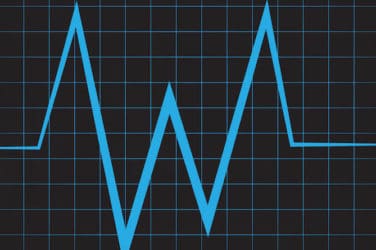
Vanguard Asset Management is going to launch more exchange-traded funds in Europe after the US firm had the largest net ETF/ETP inflows in the region in September.
Tim Huver, ETF product manager at Vanguard, told Markets Media: “We will continue to launch products over the next 18 months but take a methodical approach. We are going to launch more core building block ETFs, and equity and fixed income products.”
He added that European investors had favoured equity ETFs but that would change over time to more interest in fixed income and then activity managed ETFs. “We do see the potential for actively managed low-cost strategies that would be a positive development for investors and could lead to greater competition,” he added.
Vanguard launched an ETF business in Europe in May 2012 and Huver said the firm now offers 13 products in the UK and has accumulated $12bn in assets.
This month Vanguard listed four Irish-domiciled ETFs on the London Stock Exchange which track the performance of broadly diversified FTSE indices.
Ken Volpert, head of investments for Vanguard in Europe, said in a statement: “ETFs are coming of age in Europe as both retail and institutional investors value their low costs, liquidity and transparency.”
Vanguard said that ongoing costs for its European ETF suite range from 0.07% to 0.29% compared to an industry average of 0.35%. Huver said the cost in Europe is still much higher than the 0.1% average cost in the US.
From the beginning of September Vanguard cut fees for a range of index mutual funds, ETFs and its suite of LifeStrategy funds.
Tom Rampulla, managing director for Vanguard in Europe, said in a statement: “As we broaden our presence in Europe, we will leverage operating efficiencies and use our increasing global scale to keep costs to a minimum for investors.”
Vanguard Group, which is known for pioneering passive investment strategies in the US, reached $3 trillion in global assets for the first time in September according to The Wall Street Journal.
“Our strategy is not just based on low costs but also on our mutual ownership structure so revenues go back into the business,” added Huver. “You also need to have expertise in the investment process and aspects such as low tracking error and the ability to educate investors.”
Last month Vanguard had the largest net ETF/ETP inflows in Europe of $1.1bn according to consultancy ETFGI. France’s Amundi was second with $771m followed by Deutsche Bank’s DB x-trackers/ETCs with $663m.
Despite Vanguard’s performance in September, Blackstone’s iShares is the largest ETF/ETP provider in Europe in terms of assets with $209.8bn giving the firm a 46% market share. In Europe the three largest ETF/ETP providers – iShares, Deutsche Bank and Societe Generale’s Lyxor AM – together account for 68.4% of assets according to EFTGI.
In September ETFs and ETPs listed in Europe suffered net outflows of $3.1bn according to ETFGI.
Huver said the net outflows last month did not change Vanguard’s long-term strategy of building an ETF business in Europe. In the first nine months of this year European ETFs gathered a record $47.4bn in net new assets, overtaking the previous record of $28bn in the first three quarters of 2011, according to ETFGI.
“The dynamics in Europe are the same as those in the US a decade ago so there will be greater adoption of ETFs,” Huver added. “We see a considerable amount of growth going forward.”
For example, Huver said some US pension schemes use ETFs while Europe is introducing greater flexibility in how investors save for their retirement and how to use their pensions after they stop working. More institutions are also using ETFs as alternative to some derivatives such as index futures.
“The pension space is interesting,” he said. “Schemes are beginning to use ETFs for longer-term strategies and not just short-term tactical allocations.”






